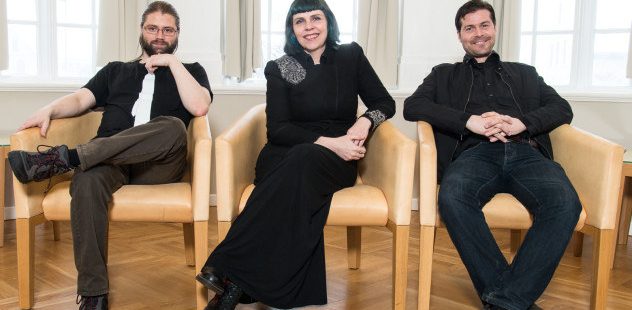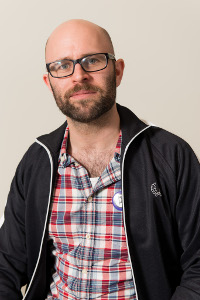Pirate Party On Track For A Record Victory In Iceland | PirateTimes

Pirate Party On Track For A Record Victory In Iceland
This is a guest post by Mattias Bjärnemalm, vice-president of Pirate Party Sweden and currently in Iceland for the elections.
++++++++++
This coming Saturday there will be an election in Iceland, after the Panama scandal forced the Prime Minister to resign and the government to call new elections this summer. It’s impossible, at this point, to say whether the Icelandic Pirate Party will be the largest or second largest party after the election. However, it’s entirely clear that compared to their result of 5.1% in the previous election, this will be an enormous success for them. This will be a large step forward for not just the Icelandic pirates – at the moment of writing, more than thirty pirates from other countries have said that they will travell to Iceland to be there at the election. In that group we can find the leaders for the Swedish, German, Dutch and Slovenian pirate parties, as well as our MEP Julia Reda.
What is it that has made the Icelandic Pirate Party successful? My analysis is that they have succeeded in building upon their previous successes very well. To go from 5% to 20% is an incredible change, but that’s actually not as impressive as the feat of 5.1% in the first election that a party stands in. To understand the Pirates’ success, you have to first understand the circumstances of their election in 2013, half a year after the party’s founding.
This is how ‘The Iceland Blog’ described the situation in 2012:
“Birgitta Jónsdóttir has been elected leader of Píratapartýið. In the Icelandic Pirate’s first policy program there is among other things a call for more transparency in society and increased civil rights. The goal is to get into the Alþingi in the spring elections. The Pirate Party will, above all, be trying to recruit young members who are active on the net. On Saturday the Pirate Party was formally founded at a meeting in Reykjavík. Birgitta Jónsdóttir, who is today an MP for ‘The Movement’, was elected leader of the executive committee. On the committee is also Björn Þór Jóhannesson, Halldóra Mogensen, Jason Scott and Stefán Vignir Skarphéðinsson, as well as Herbert Snorrason and Einar Valur Ingimundarson who were elected by lottery. The goal is to breach the 5% barrier to the Alþingi in April and gain representation in parliament. The Icelandic Pirate Party is aimed mostly towards young and internet-active voters.“
This can be seen as a relatively representative overview of the new party, where the focus was very much on Birgitta. The same blog described their policies in the following way before the election in 2013:
“The Icelandic pirates push classic pirate topics: transparency, freedom of information, direct democracy, public participation and – not necessarily as classic – decriminalization of narcotics. The use of narcotics should, according to the Pirate Party, be handled as a medical and not a legal and judicial problem. They attract mostly young voters from the left. Seen as a bit tougher and not as ‘squeaky clean’ as the Left-Green Movement. The most well-known name in the party is Birgitta Jónsdóttir, who has already had one term in parliament, first as part of ‘Citizen’s Movement’ and then ‘Movement’.“
In short, it’s the fact that they already had an MP from a grassroots movement that is emphasized and that gives the pirates the space they need to succeed at taking themselves over the 5% barrier. With Birgitta’s help they were able to be elected with three MP’s.
The Pirate’s next challenge was to prove that they weren’t just some blip and that they could win elections without celebrity power, which they had a chance to do in the council elections in 2014. There they succeeded, with Halldór Auðar Svansson at the top of the list who was elected into Reykjavík City Council with 5.9%. Through participating in the new municipal government they showed that they were willing to take responsibility in future elections.
Today, the situation is different. The pirates have more candidates with parliamentary experience, and their prime ministerial candidate is Smari McCarthy. He isn’t currently an MP, but Smari was one of the founders of the party and tops one of the lists for a constituency outside Reykjavik (something he also did in the last election when the pirates didn’t reach 5% there). Birgitta remains a central figure in the party and currently proposed as a future speaker of the house for the next parliament. In general, more faces have been brought forward and the pirates are seen as a broad movement in Iceland. After one year of leading the opinion polls, the people of Iceland, and the pirates themselves, have gotten used to the idea that they will probably play a part in the next government.
I don’t think I can emphasize enough how important it would be for the pirate movement globally to have a government with pirate ministers. So it is with great hope that I have packed my bags and booked my journey to Iceland. I flew there for a bit in September to get an idea of who they are and how they work, and I look forward to seeing them again in the coming days. And, of course, there will be a new post here after the election.
++++++++
Mattias Bjärnemalm
Vice-president and Net Political spokesperson for Pirate Party Sweden.

CC-BY, Stefan Rouden
Mattias Bjärnemalm works as an expert in Net Politics in the European Parliament and was previously Head of Cabinet for Amelia Andersdotter’s (ex-MEP) office in Brussels. He is born and raised in Skǻne (southern Sweden) but has also lived and studied in Uppsala, Sweden before moving to Brussels. During his time in Uppsala he founded the Young Pirates Sweden where he was the association Secretary 2006-2009. He was also active in the Pirate Students in Uppsala and sat as a member of the Uppsala University Board 2009-2010.
During his time in Brussels he has worked with several areas within Net Politics such as copyright, net neutrality, data protection, ACTA, IoT and the IANA transition. He is also a frequent visitor to the Internet Governance Forum and EuroDIG.
Mattias was also central in the creation of Young Pirates of Europe and also the European Pirates (where he is currently a board member).
Featured image: CC-BY, Day Donaldson
About
All content is CC-BY if not mentioned otherwise. Please link back to us if using content.











Antonio García García